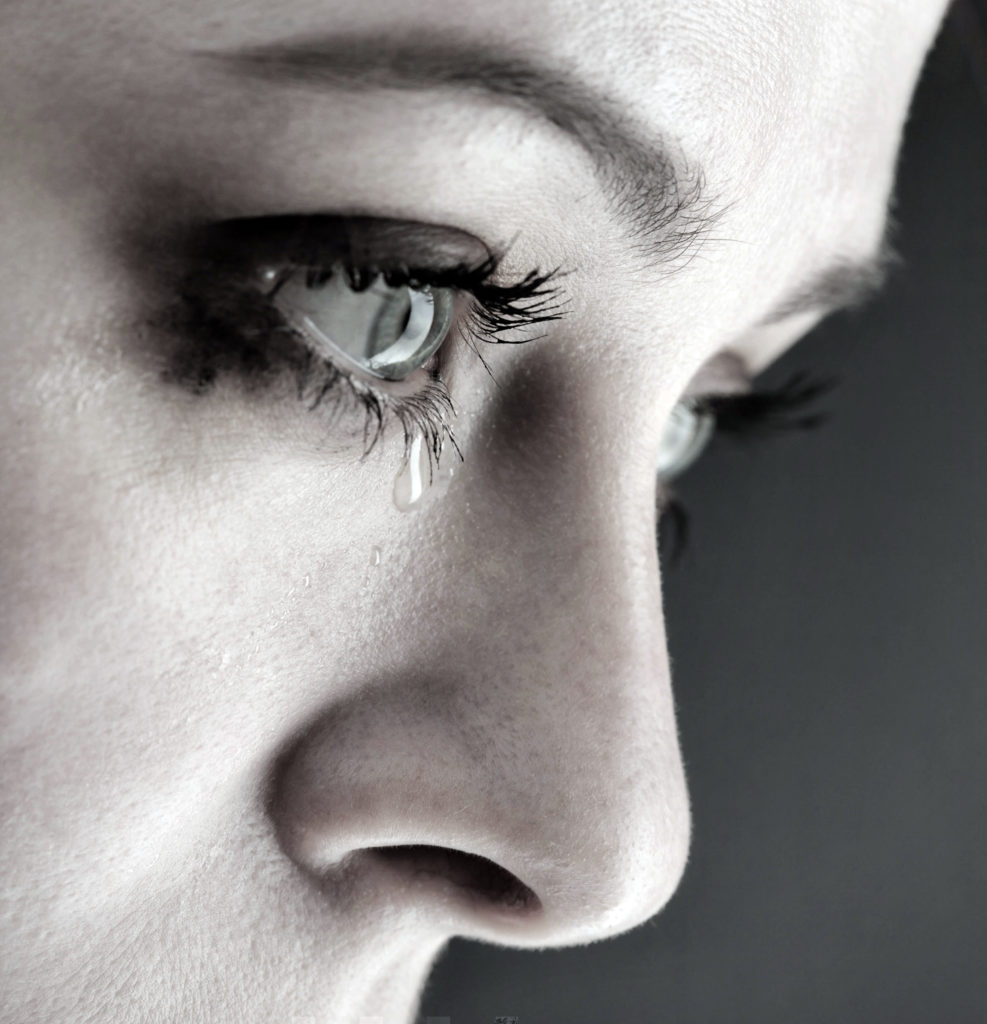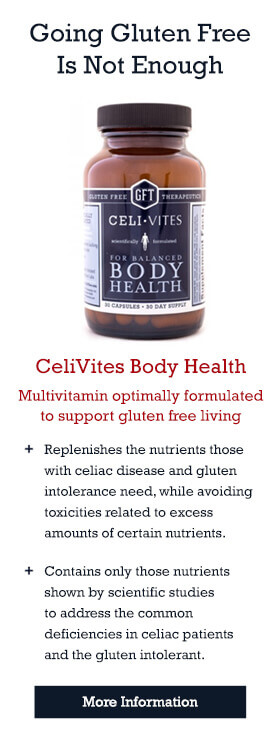
Depression is linked to celiac disease
Feelings of fatigue, feeling overwhelmed, chronic sadness, anxiety, insomnia, depression and even headaches are all too common among people with celiac disease. For a long time, the list of symptoms for celiac disease only included the obvious gastrointestinal problems, such as abdominal pain and diarrhea, as well consequences of malabsorption, such as anemia or osteoporosis. It was not yet known that depression is linked to celiac disease.
In recent years, however, as researchers unveil the connections between our brain and gut, there has been an increased interest in how celiac disease may influence the nervous system. In reviewing patient symptoms the question arose as to whether depression could be linked to celiac disease. It turns out celiac disease not only disturbs the digestive tract, but also extends to psychological issues.
Physicians have learned mood disorders, such as anxiety and depression, are linked to celiac disease, and may influence the patient’s quality of life and their adherence to a gluten-free diet.
How are the two conditions linked?
Despite the somewhat contradictory results about exactly what psychological disorders are associated with celiac disease, there is a consensus among researchers that anxiety and depressive symptoms are a common feature in patients with celiac disease. Perhaps having such a restrictive diet could be enough to trigger a sense of hopelessness in some patients, but it turns out there more to it than that!
How does celiac disease trigger anxiety and depression?
The mechanisms to explain how celiac disease increases the risk of psychiatric problems are not fully understood, but it’s probably a consequence of malnutrition affecting normal brain function. Tentative explanations include lack of amino acid tryptophan and vitamin B, as well as poor blood flow to the brain. These patients may be less well equipped to deal with all the problems and limitations associated with having this condition, making them more prone to psychological issues.
What implications can these mood disorders have on a patient with celiac disease?
Anxiety and depression can be troubling for any patient, but for those with celiac disease these conditions can trigger a worrying vicious circle that may be difficult to get out of. Studies have shown that depression is one of the main reasons for patients ignoring their gluten-free diet, only making their condition worse and aggravating their feelings of anxiety and depression.
Can a gluten-free diet improve symptoms?
Sadly, on this occasion, a gluten-free diet may not be enough to relieve symptoms of depression in some patients. In fact, many studies have found no improvements after diagnosis and starting a gluten-free diet, although they suggest that the reasons for feeling depressed may change. It may no longer be a consequence of malnutrition, but due to potentially financial and social restrictions imposed by the new regime.
What else can be done to break this vicious circle?
For patients where a gluten-free diet fails to reduce symptoms, psychological support and counselling may be the way to go. Family support and involvement is important. This approach not only combats the feelings of depression but, in the long term, will also help patients stick to their gluten-free diet.
Conclusion
The main message from these studies is how dangerous anxiety and depression feelings can be for a patient with celiac disease, often resulting in a careless and reckless attitude towards their diet. If not treated, this could easily spiral out of control, significantly increasing the risk of long term problems, including developing other conditions such as diabetes or even cancer.
Additional articles you may find helpful:
Comments ()
















Very interesting. I have all the symptoms.
Do you get the headaches/migraines? I have had them constantly since Feb 2015.
Read this very interesting
Celiac my whole life. Dx at age 57. Lots of fatigue, depression and being overwhelmed. Good news. I stuck with the diet and supplemented with vitamins, especially sublingual B12, and fish oil, extra vit. D. Feel great, no depression, energy, focus. Life is good 13 years in. It did take about three years before I felt 100%. Don’t give up.
Good for you Sue! Our culture has so many temptations. It can be difficult to comply to a healthy diet and supplement program.
Yes. Awesome for you. Gives me hope. My 13 year old is feeling all these symptoms right now. But I am having a very hard time convincing her that good food is going to help, along with extra vitamins. She thinks she can indulge on the chips, cheeszies, etc that are GF. She keeps telling me about all the symptoms but doesn’t want to get the advice. She also complains about memory loss
I have suffered from Anxiety for many years. Then it turned into depression. Went on an anti-depressant. Went off them after 10 years. Anxiety levels weren’t so bad, due to cutting out wheat and Gluten as much as I could. Started cutting out white sugar and introduced Xylitol since my insulin levels only shot up. Sugar level is fine. Moods of irritability, anxious, restless during sleeping, bloating immediately if I eat anything that has wheat and gluten. Potatoe starch is another bad starch to have if you have a sensitivity to gluten, so I’ve noticed.I have pretty much all symptoms, except depression now. I have good and bad days, depending what I eat! You are what you eat!
Your article is interesting. I suffer from both and have discovered that I have some underlying genetic mutations that could cause both. Investigate mthfr c677t and other mutations and mental health. Vitamins are very important but there are some I need to avoid and some I can only use in their active forms. See seekinghealth.com and mthfr.net for more info.
I see that the Celivites have the right types of vitamins I’m looking for I will be ordering some in the future. Thanks for promoting this product.
Running to the bathroom every time you had somthing to eat was overwhelming. Depression sets in because you have to know where every wash room is located going for home to work. Once you get a diagnosis it is back to normal for me. Just stay on the diet. Lots of probiotics vitamin d. Christina
This is so me! I’m constantly fatigued and suffering from migraines! Kinda relieved to know there’s a reason.
This makes sense, I have celiac disease and just recently been diagnosed with anxiety and chronic depression. I follow a gluten free diet but still have major issues with headaches, insomnia, lack of energy, fatigue, and body aches!
All good comments. I was diagnosed with celiac disease 3 years going on 4 years. I have done extensive research O this disease. I can say all the pieces of the puzzle have ce together for myself. I now understand why I had certain symptoms before I was diagnosed by my mother’s gastro doctor. I got really sick before being diagnosed, where I was in the hospital for a week. Doctors could not figure out what was wrong with me. Mom’s gastro doctor,God Bless Him, he almost knew as soon as he saw that I had celiac. He did a scope for biopsy. I had a gastric blockage as well that he had to open up. I am now realitively health. I was always athletic, fitness minded, buty diet was not the best at all. Since being diagnosed my diet took a 180% turn. If I can add one more thing to this novel. Read labels, research all products you buy, and supplement, and get quality supplements. God Bless,
Hello. Can you get a celiac screening test and pass and still have celiac?
The article hits home for me. Not only depression sleepless nights but the rash constantly. I am trying so hard with this gluten free life but the symptoms just dont go away. The rash on my elbows and knees stick out like a sore thumb,killing my self esteem
Anna,
Check with your doctor. It sounds like you are still being exposed to gluten. There are blood tests that show that. If you are, and you can eliminate the exposure that could go along way in relieving your symptoms.
Good luck!
My daughter is 13 and a diagnosed with gluten intolerance at a rate of 49% I cook her foods, vegtables, rice, pasta etc all gluten free as well as breads and cereals
She is always tired, she hasno growth problems and has reached puberty two years ealier
I cannot find any information wich fit the criteria for her tiredness
Is there something else that can be the cause without having to medicate her with ADHD amphetamines (something I will not do ever)
She has truoble doing anything in atimley manner and fixates from onehabbit to the next wich has caused me to wait for her for up to 8hrs min a day for six years!
Please help as Im no fool and a pill is not the answer
This isn’t really a difficult question, as to why people with celiac or other food aversions/allergies feel fatigued or depressed. First, finding a balanced diet for americans in particular, that have been raised on the idea that grain, mainly wheat should be the base of their diet, may be difficult.. New celiacs may struggle to find the balance..
Second, this kills your social life. How fun is it to date with food issues? You don’t want to appear to be “that high maintenance person.” So many events are based on food.. You go out and eat with friends.. There are complete festivals dedicated to food. Do I really want to shell out $30 for the garlic festival when I am fairly certain they are going to be smearing garlic spread on breads and other gluten filled items. What about drinks? Do I really want to be asking the bartender all night if the vodka is potato vodka?
Being celiac makes me tired emotionally…. It is hard enough to get out there.. I feel like I am carrying this baggage and I have to worry about food options… I don’t want to be that freak at the table that brings their own lunch or asks meticulous questions about food, or has to ask for the special menu…
I used to do all of this stuff but I have overheard people talking about people like me… I feel it has made me a Hermite. All of this makes me anxious and depressed
Antonia,
Does your daughter have severe periods? I started when I was 11. I have always had really bad periods.. Turned out I have endometriosis.. It makes me very tired.
I was diagnosed with CD as a baby. Unfortunately a Doctor said to my mum that she could reintroduce gluten when i was 5 or 6, which she did. I never realised til i was in my late 20’s that i had CD. Started back on gf diet. All was going well. Had a bad leg injury 11 yrs ago and was unable to return to nursing. 14 ops later things deteriorated. I haven’t been sticking to my gf diet all the time. I suffer with all those symptoms apart from anxiety. I wi be discussing all this with my gp in the morning. Bit of a vicious circle. You feel down and don’t care what crap you eat. Thanks for the interesting article